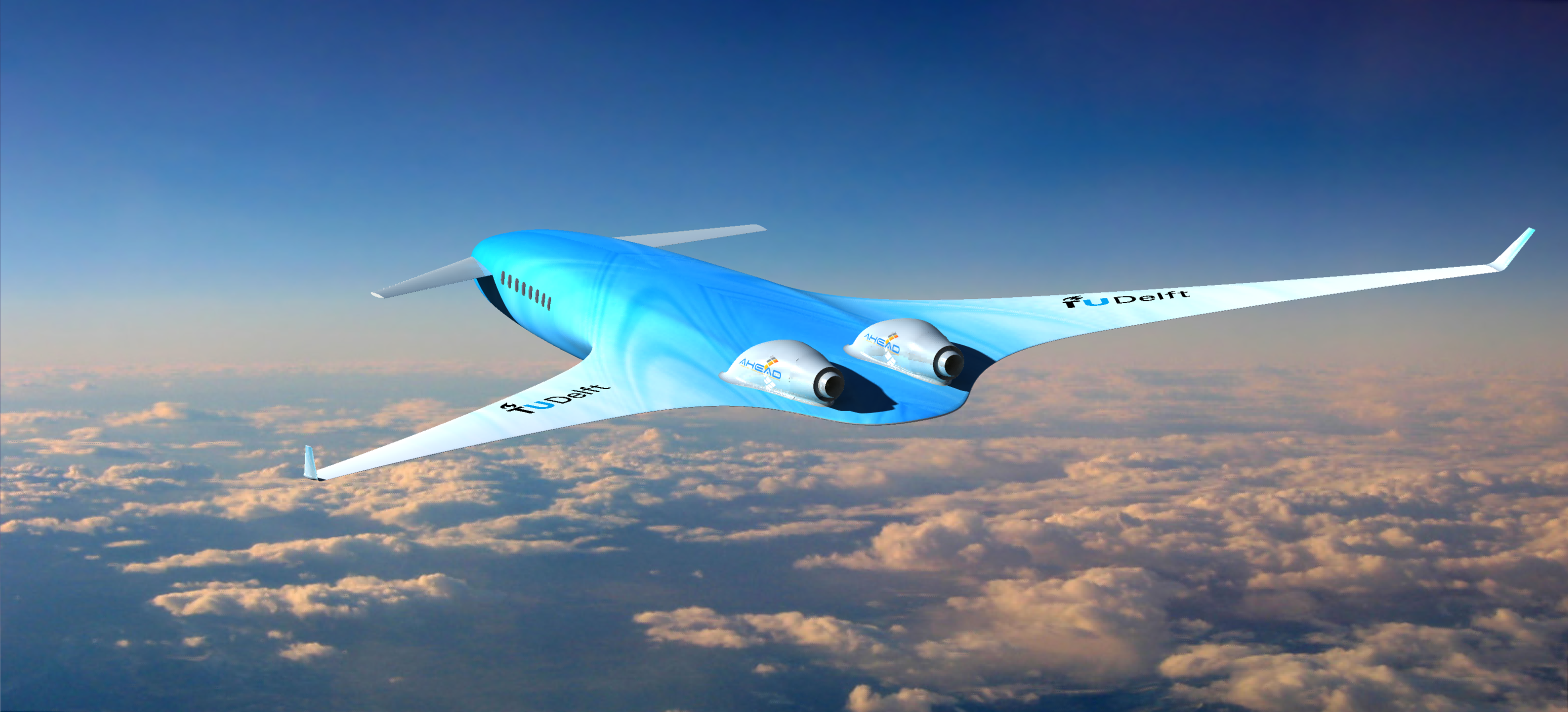In conjunction with KLM, Airbus, and a number of other companies and universities a group, at TU Delft’s Aerospace Engineering department is wrapping up the first stages of research into Advanced Hybrid Engine Aircraft Development (AHEAD).
AHEAD, which started in 2011 and is funded by the European Commission, was originally driven by the question ‘How will we be flying in 40 or 50 years’, when kerosene becomes too costly, too scarce or too damaging. As Dr. Arvind Gangoli Rao, scientific coordinator for the project put it, “How will we fuel the future of flying?” Civil aviation currently uses over 1 billion litres of fuel per day, AHEAD seeks to reduce this and meet the Advisory Council for Aviation Research and Innovation in Europe’s goals for CO2 reduction.
The project’s most current design certainly looks futuristic, with its sleek appearance and Blended Wing Body. It differs from current commercial aircrafts in a number of ways, primarily in its physical design, and fuel source. Aircraft today have engines mounted on the wings, whereas AHEAD, using Counter Rotating Fans to mitigate turbulence and disruption of airflow, has instead mounted the two engines on the back of the plane. To complement this, the Blended Wing Body means that the entire aircraft is creating lift, and not just the wings. Additionally there is less drag which, combined with the extra lift makes for greater fuel efficiency.
As for the fuel source, AHEAD’s hybrid engine uses two combustion chambers, burning different fuels. The first chamber burns either natural gas or liquid hydrogen while the second burns bio-fuel using flameless combustion. Dr. Rao explained to Delta that efficiency, emission, noise and energy source are four of the biggest technical challenges in civil aviation, and with this design AHEAD hopes to address all of them.
When asked, he added that commercial aviation will likely experience the same developments as the automobile industry in the last ten to fifteen years. Where a decade or so ago cars ran for the most part on gasoline, today you can also find hybrid engines, fully electric cars; “the energy mix in automobiles has gone up, that is what is going to happen to aviation as well.”
A project spearheaded by TU Delft, with around five researchers and 20 students on board AHEAD is currently seeking funding to begin the next step in designing and developing this concept.



Comments are closed.